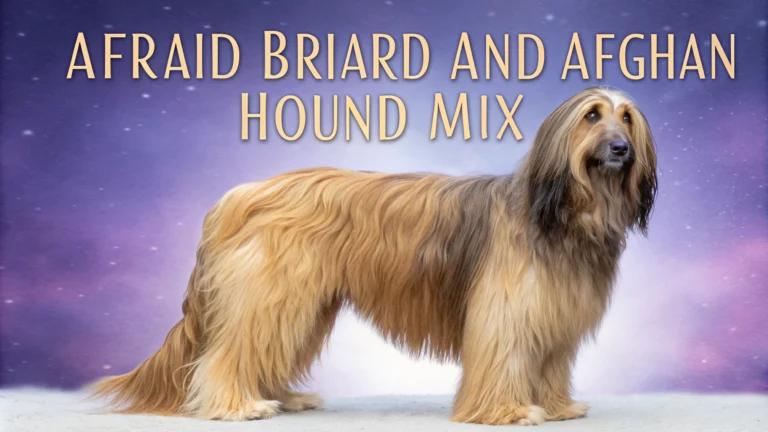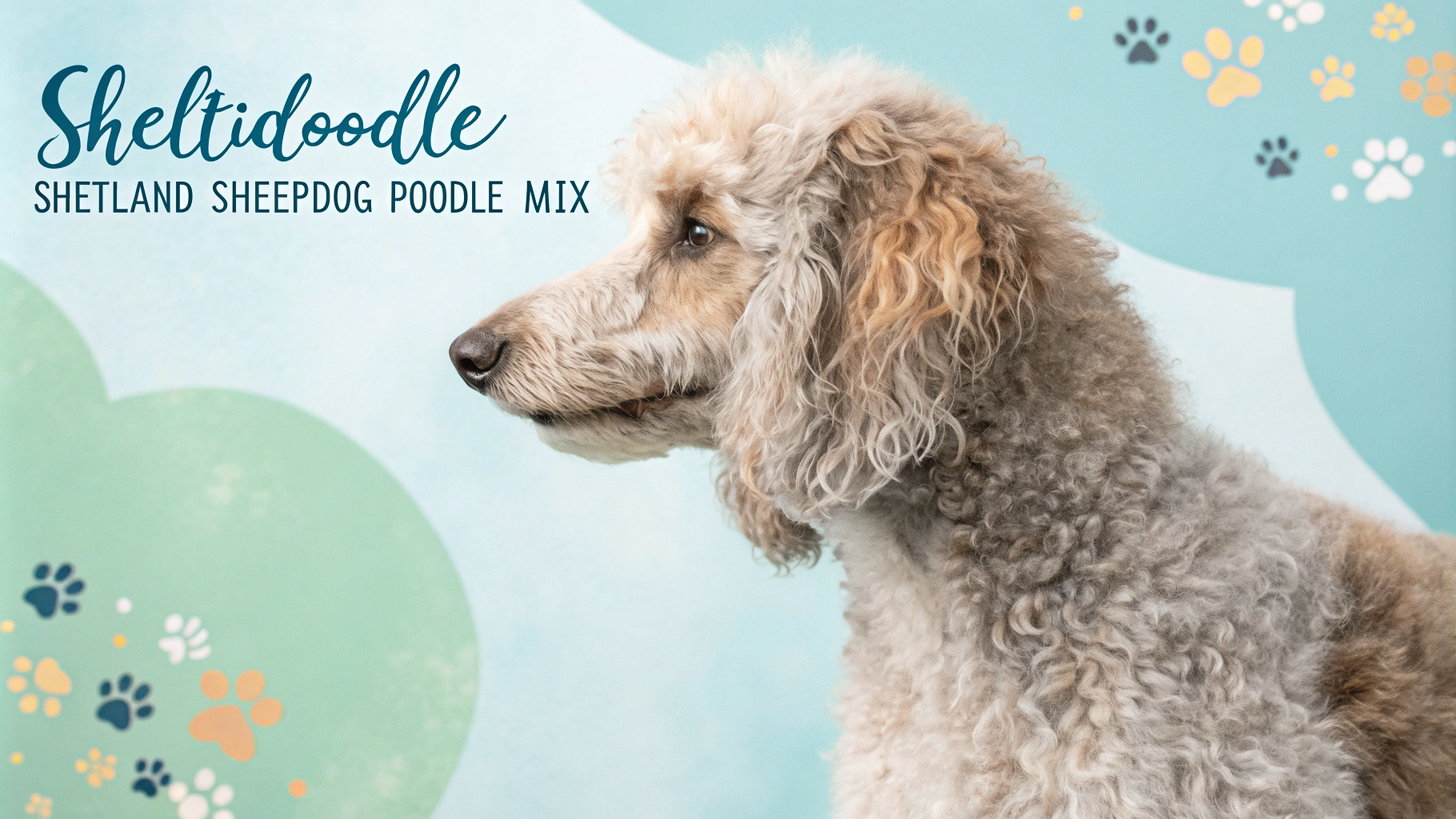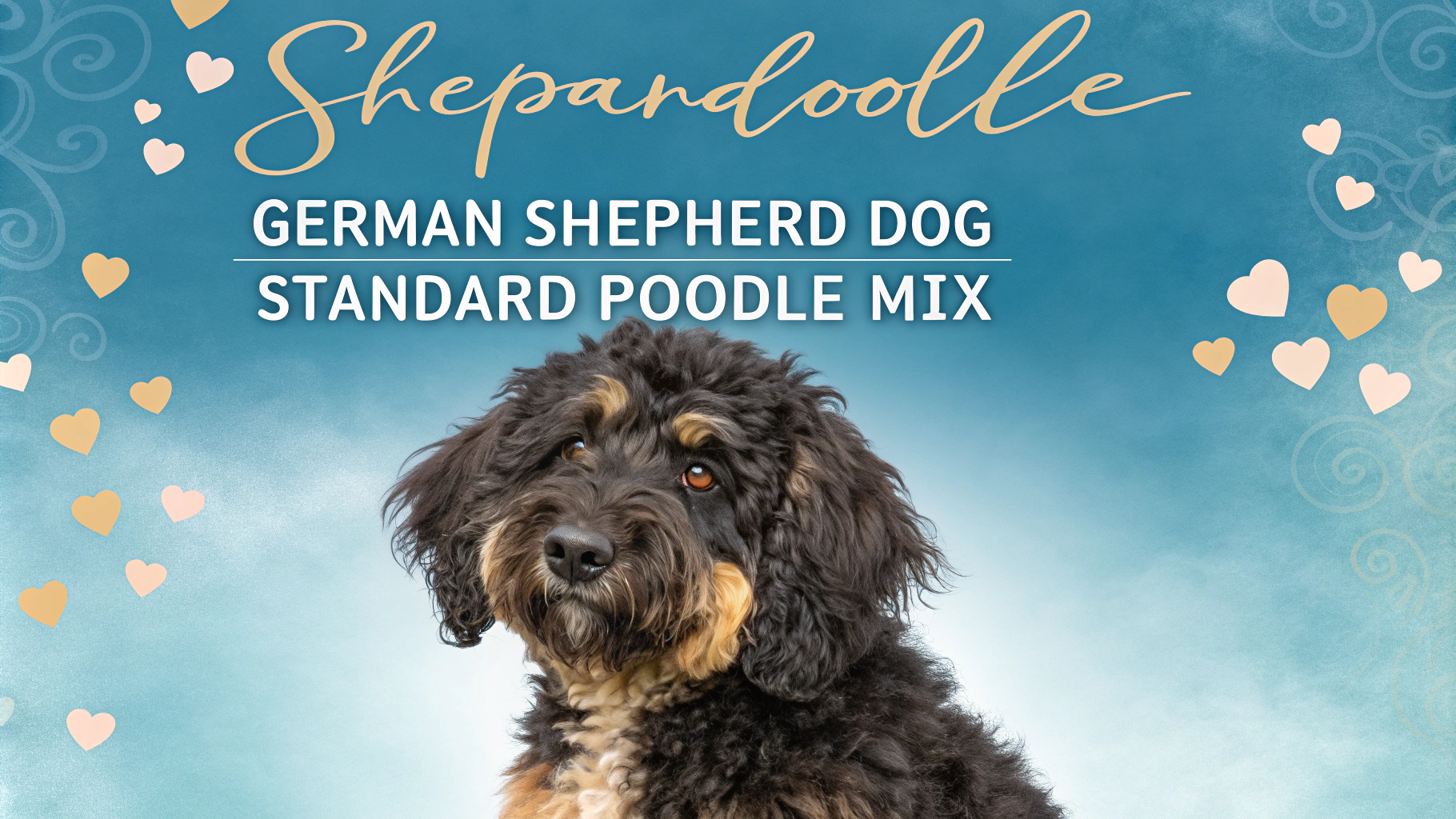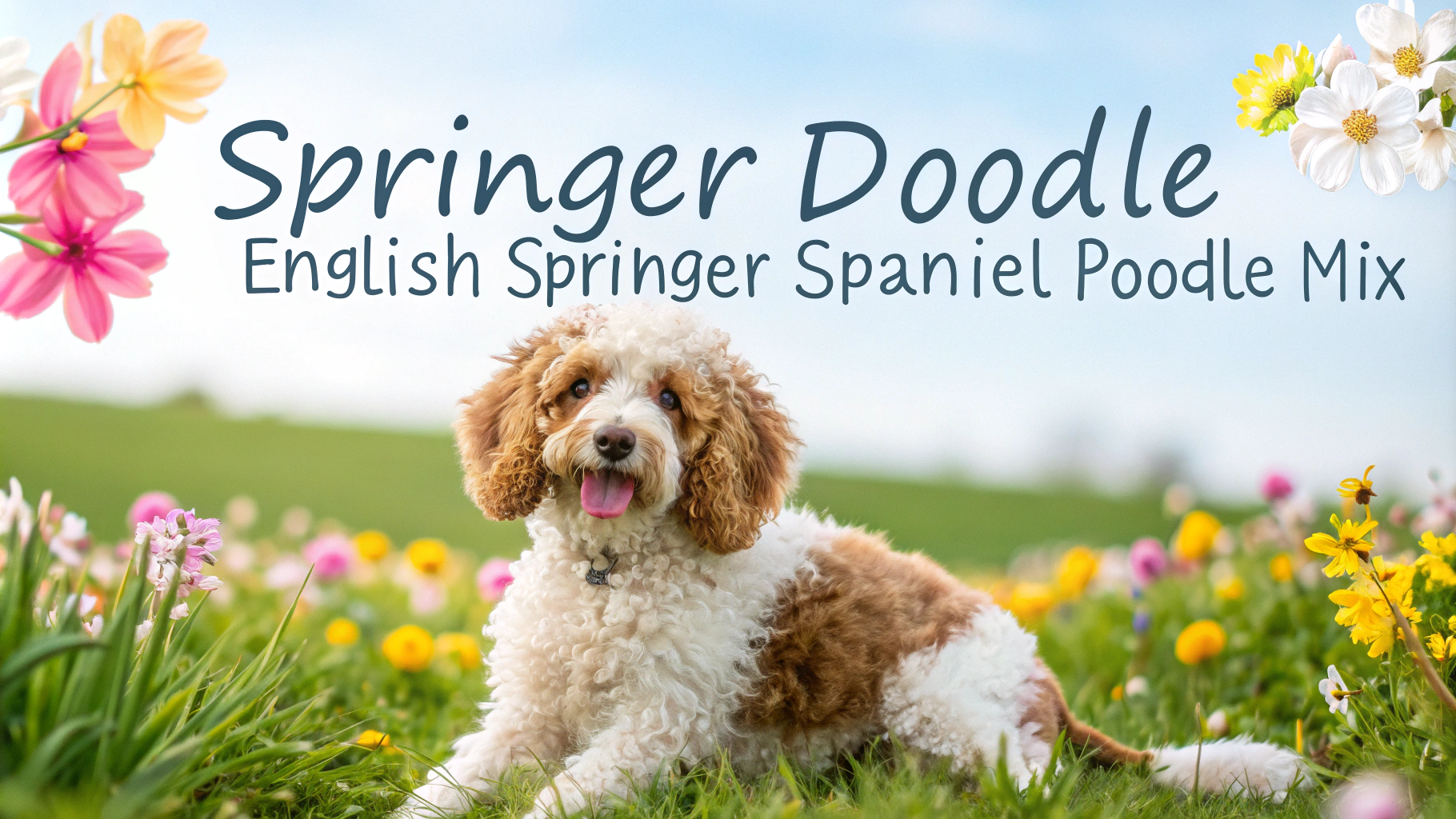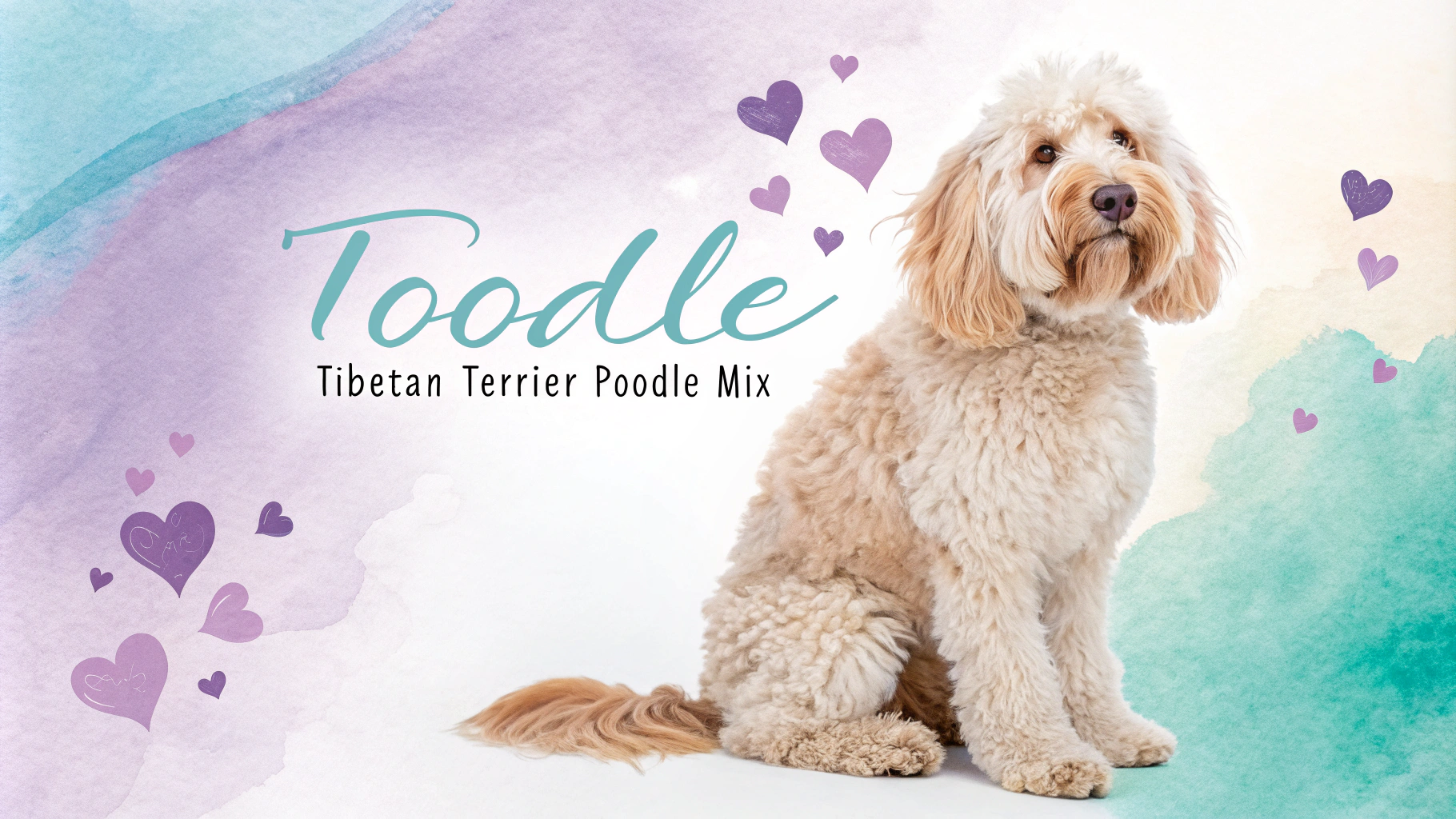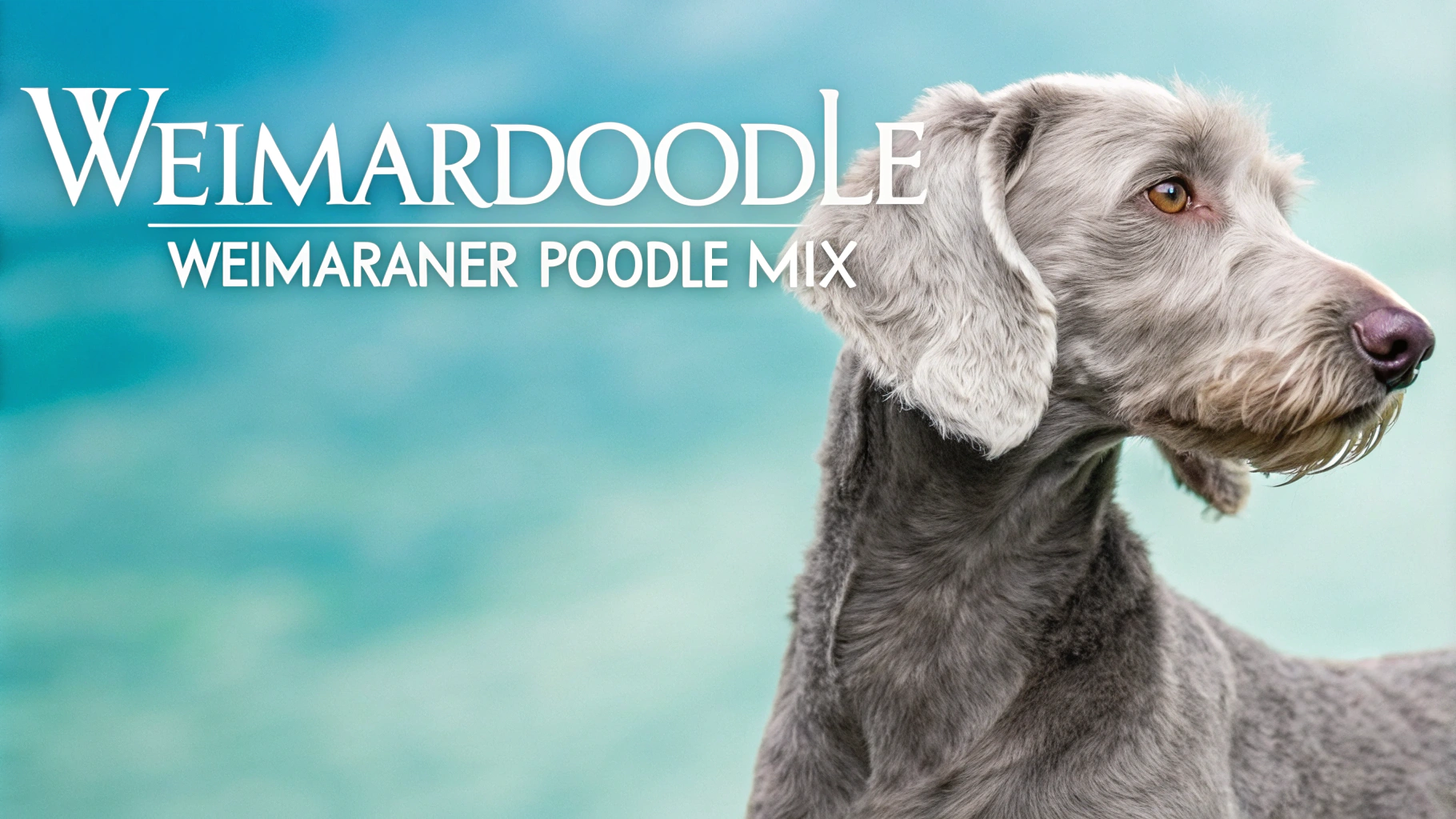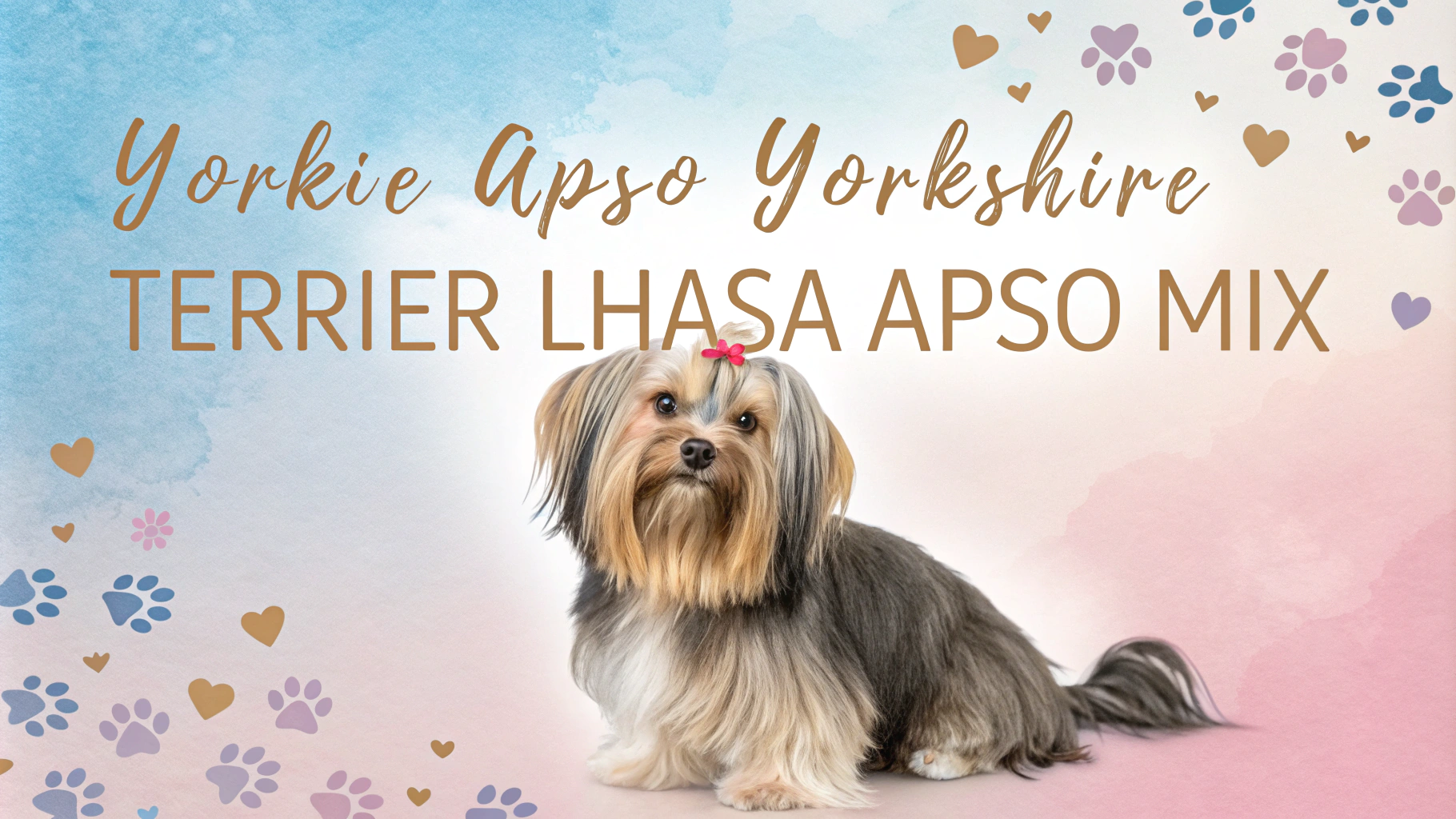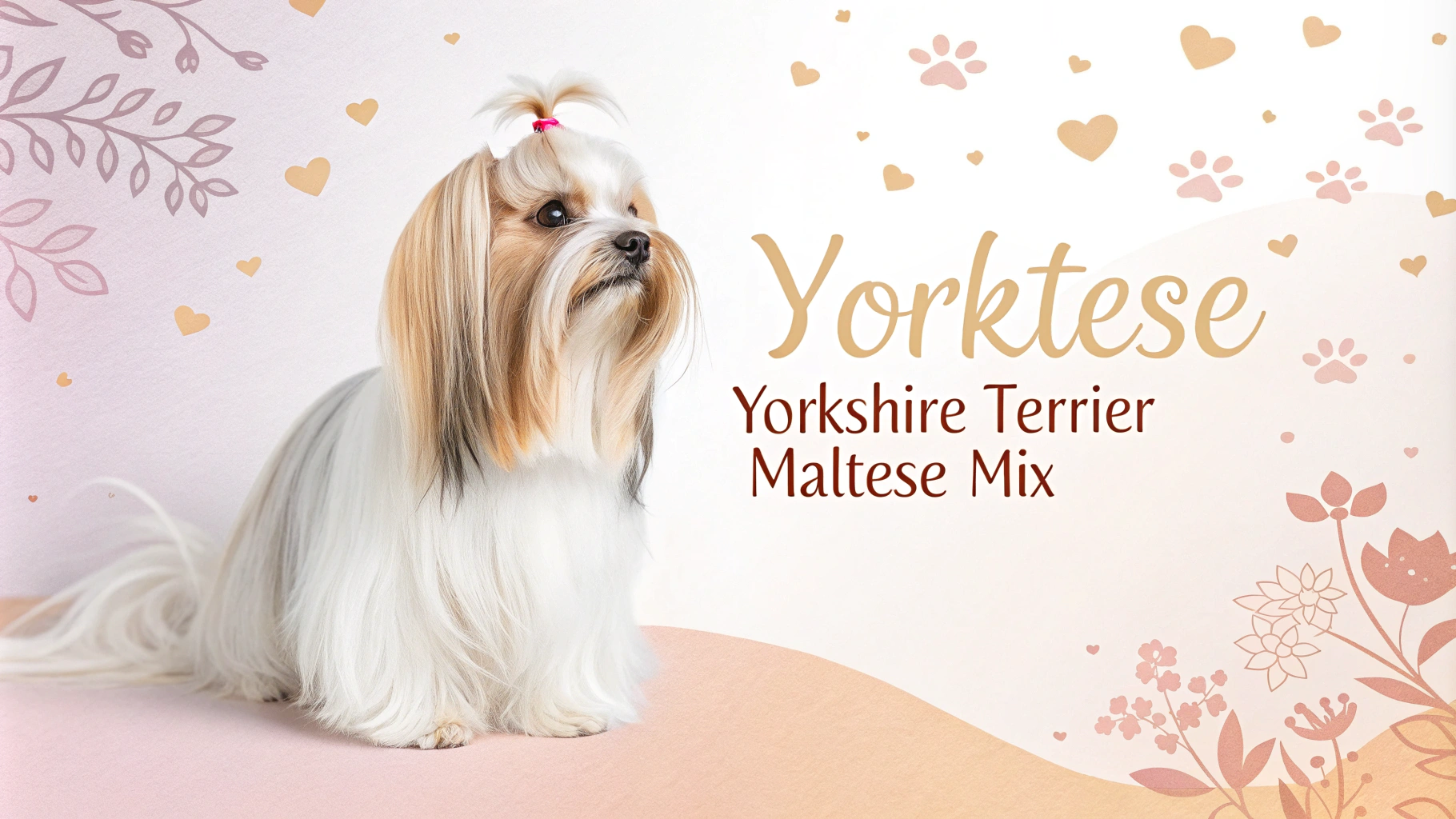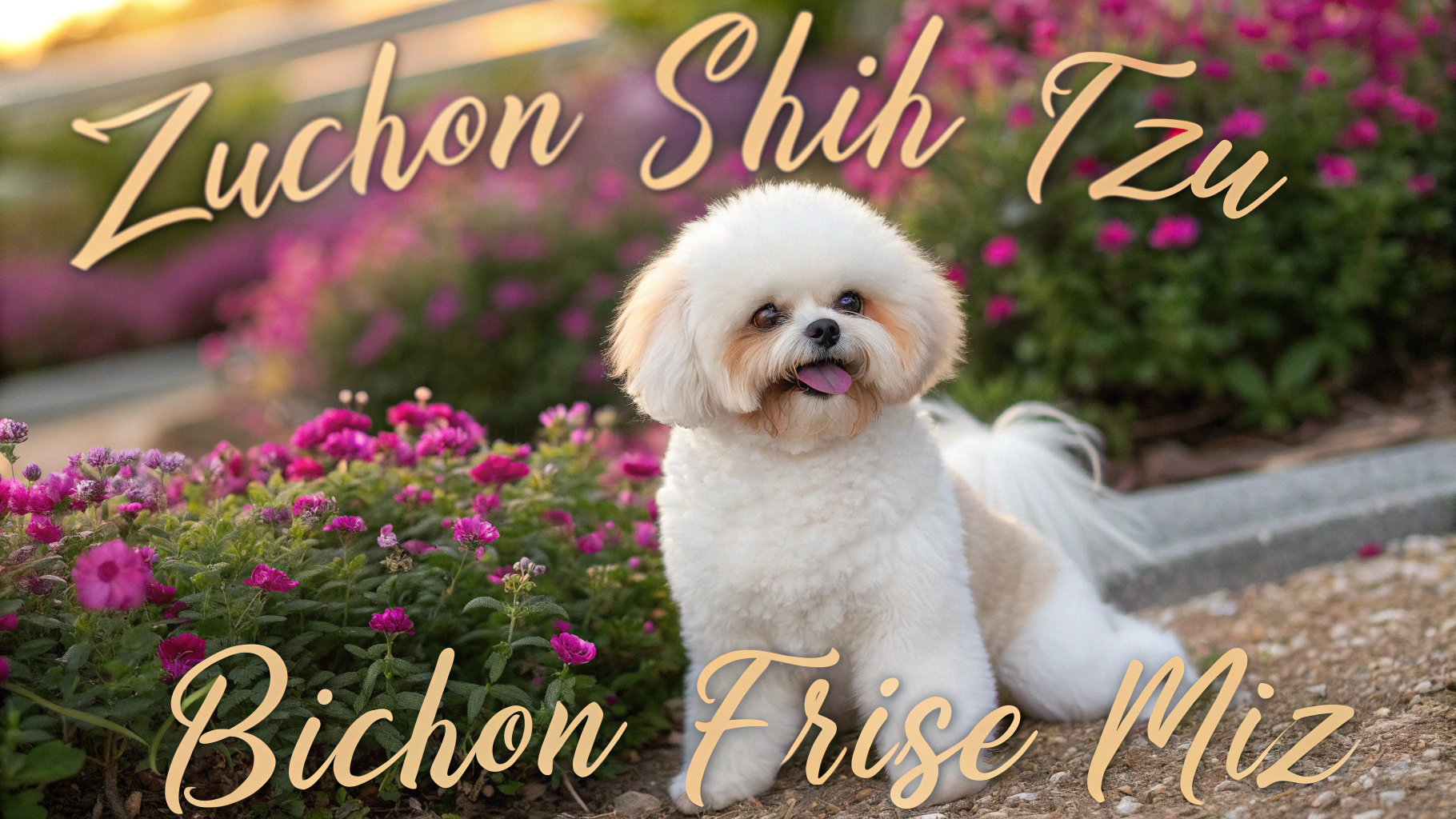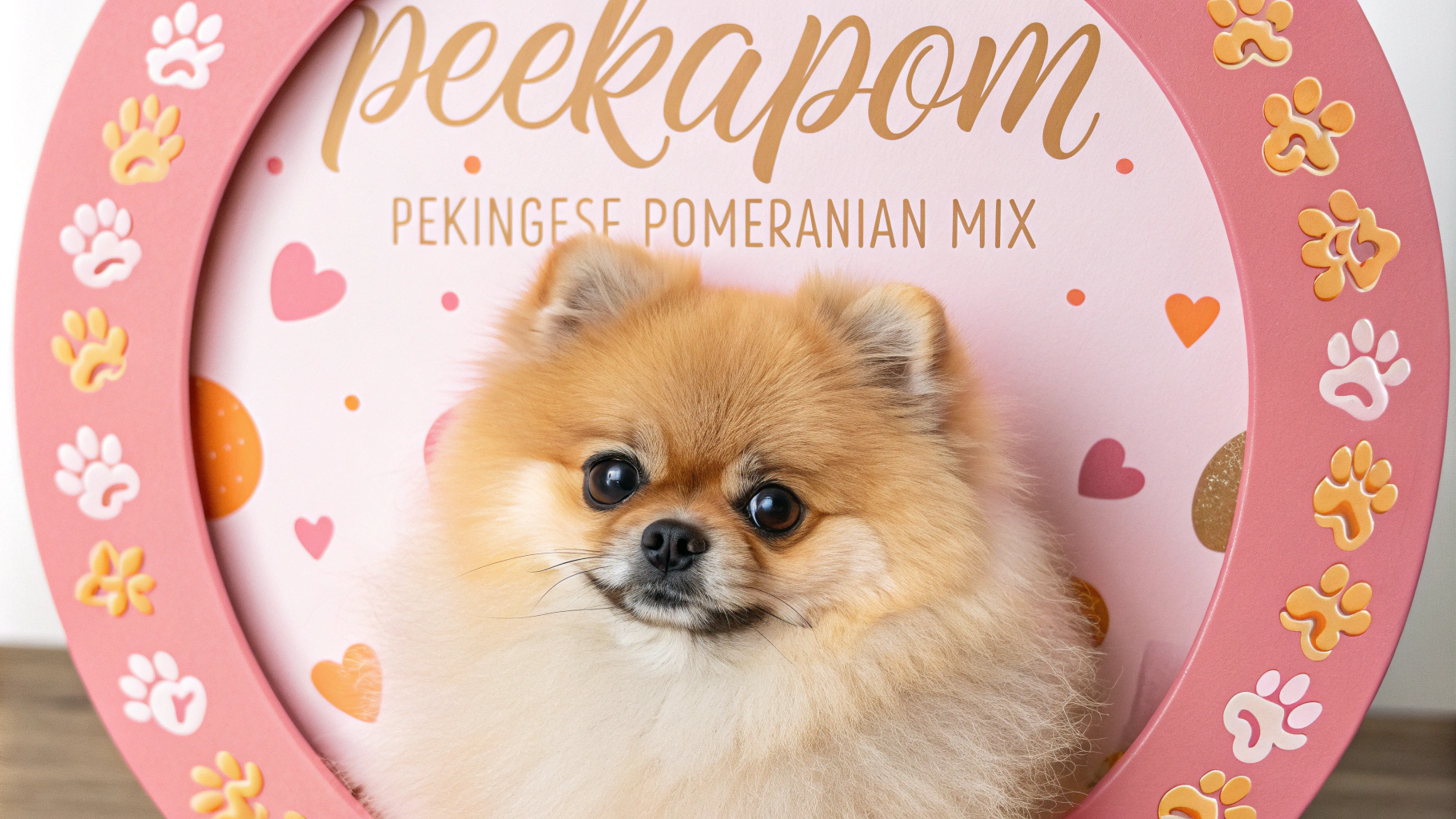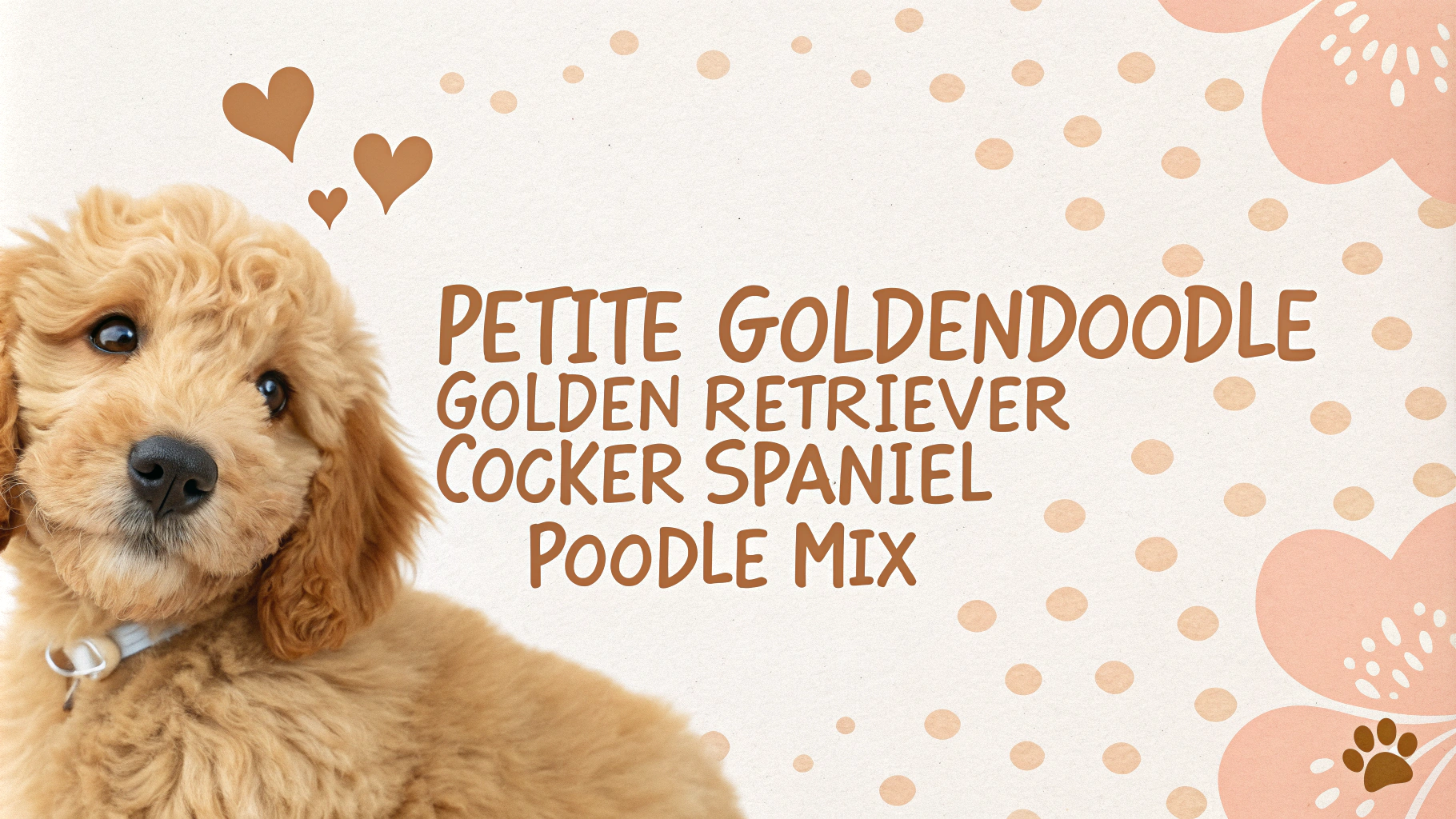The Afaird is a unique mixed breed resulting from crossing a Briard with an Afghan Hound. This rare combination brings together two ancient breeds known for their distinctive appearances and personalities. The Afaird inherits traits from both parent breeds, potentially resulting in a large, elegant dog with a long, flowing coat and independent nature. Due to the rarity of this mix, specific traits can vary significantly between individual dogs.
Key Facts
- Size: Large
- Weight: 50-90 pounds (22-41 kg)
- Height: 22-27 inches (56-69 cm) at the shoulder
- Coat: Long, silky, and potentially wavy or straight
- Lifespan: 10-14 years
- Colors: Various, including fawn, black, brindle, or combinations
- Temperament: Independent, intelligent, and potentially aloof
Character Traits
The Afaird is likely to be an intelligent and independent dog, combining the Briard’s protective nature with the Afghan Hound’s aloof demeanor. They may be reserved with strangers but loyal and affectionate with their family. This mix could inherit the Briard’s herding instincts and the Afghan’s strong prey drive, resulting in a dog that requires consistent training and socialization. Afairds are likely to be confident and dignified, with a potential for stubbornness that calls for patient, positive reinforcement-based training methods. Their intelligence makes them quick learners, but their independent streak might pose challenges in obedience. These dogs may also display a good balance of playfulness and calm, making them suitable for families who can provide adequate mental and physical stimulation.
History & Origins
The Afaird is a designer dog breed without a long-established history. To understand this mix, it’s essential to look at the histories of its parent breeds. The Briard is an ancient French herding dog, dating back to the 8th century. Known for their loyalty and protective nature, Briards were used to herd and guard flocks. The Afghan Hound, equally ancient, originated in Afghanistan and surrounding regions. Originally bred for hunting large game in mountainous terrain, Afghan Hounds are known for their speed, agility, and distinctive appearance. The intentional crossing of these two breeds to create the Afaird is a relatively recent development, likely occurring within the last few decades as part of the designer dog trend. The exact origins and motivations behind creating this specific mix are not well-documented, and it remains a rare combination compared to more popular designer breeds.
Health Concerns
The Afaird, being a mix of Briard and Afghan Hound, may inherit health issues common to both parent breeds. Potential concerns include:
- Hip dysplasia
- Progressive retinal atrophy (PRA)
- Bloat (gastric dilatation-volvulus)
- Hypothyroidism
Regular veterinary check-ups are crucial to monitor for these conditions. Genetic testing can help identify potential inherited diseases. Maintaining a healthy weight and providing proper nutrition can help mitigate some health risks.
Exercise Needs
The Afaird is an energetic breed that requires substantial daily exercise. Aim for at least 60-90 minutes of physical activity per day, which can include:
- Long walks or jogs
- Off-leash running in a secure area
- Agility training
- Interactive play sessions
Mental stimulation is equally important for this intelligent mix. Puzzle toys, obedience training, and scent work can help keep their minds engaged. Without adequate exercise and mental stimulation, Afairds may develop destructive behaviors.
Space Requirements
The Afaird is a large breed that thrives in spacious environments. Ideally, they should have access to a large, securely fenced yard where they can run and play freely. However, they can adapt to apartment living if provided with ample exercise and outdoor time.
Indoor space should accommodate their size, with room to move around comfortably. A dedicated sleeping area and space for toys and activities are essential. Remember that this breed has a strong prey drive, so outdoor areas should be secure to prevent escapes.
Nutrition & Feeding
The Afaird requires a high-quality diet formulated for large, active breeds. Key considerations include:
- Protein-rich food to support muscle maintenance
- Balanced omega fatty acids for coat health
- Glucosamine and chondroitin for joint support
- Appropriate calorie content to maintain healthy weight
Feed adult Afairds twice daily, adjusting portions based on age, weight, and activity level. Avoid free-feeding to prevent obesity and reduce the risk of bloat. Always provide fresh water and consult with a veterinarian for personalized nutritional advice.
Grooming Tips
The Afaird’s coat is a combination of the Briard’s long, shaggy fur and the Afghan Hound’s silky, flowing coat. This unique mixture requires regular and thorough grooming to prevent matting and tangling. Daily brushing is essential, using a slicker brush and metal comb to work through the coat carefully. Pay special attention to areas prone to matting, such as behind the ears, under the legs, and around the tail.
Regular bathing every 4-6 weeks is recommended, using a high-quality dog shampoo and conditioner suitable for long-haired breeds. After bathing, thoroughly dry the coat with a low-heat blow dryer while brushing to prevent tangles. Trimming may be necessary every few months to maintain a neat appearance and prevent the coat from becoming too unmanageable.
Don’t forget to regularly check and clean the ears, trim the nails, and brush the teeth to maintain overall hygiene. Professional grooming every 8-12 weeks can help keep the coat in optimal condition and make at-home grooming more manageable.
Training Approach
The Afaird is an intelligent breed that inherits traits from both the Briard and Afghan Hound. This combination can result in a dog that is both clever and independent, sometimes presenting challenges during training. Positive reinforcement techniques work best with this breed, as they respond well to praise, treats, and play-based rewards.
Early socialization and obedience training are crucial for the Afaird. Start with basic commands and gradually progress to more advanced training. Be patient and consistent, as the Afghan Hound influence may contribute to occasional stubbornness. Short, engaging training sessions are more effective than long, repetitive ones to keep their interest.
Incorporate mental stimulation exercises into training routines, such as puzzle toys and scent work, to challenge their intelligence and prevent boredom. Agility training can also be beneficial, tapping into their natural athleticism. Remember that the Afaird may have a strong prey drive, so leash training and recall commands should be prioritized for safety during walks and outdoor activities.
